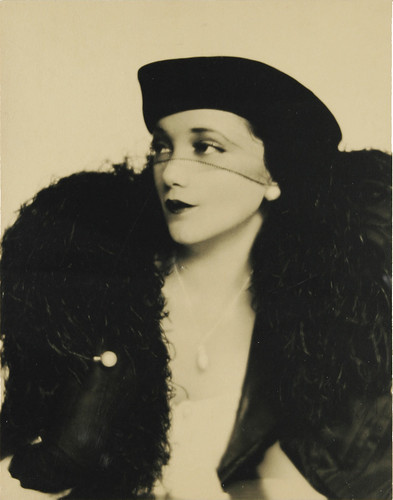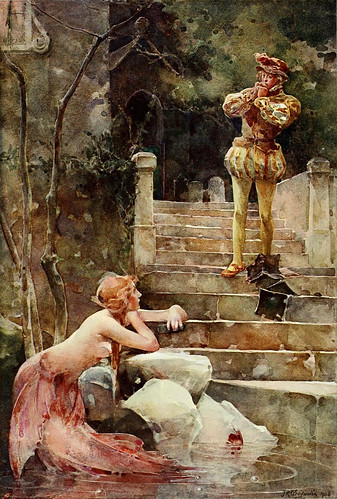 “With a feeling of deep yet most singular affection I regarded my friend Morella.” –opening words of “Morella” (1835)
“With a feeling of deep yet most singular affection I regarded my friend Morella.” –opening words of “Morella” (1835)The subject of today’s post comes to you from the dark imagination of Edgar Allan Poe, one of my favorite sources for dreamy girls’ names with macabre undertones. The short story “Morella” is one of his least-known works: a widower’s surreal and disturbing account of his wife’s death and perceived reincarnation. Normally I would discard her as made-up, flimsy or what-have-you, but the closer I look, the more compelling she is. The name of an ancient walled city, as well as an alternative name for the poisonous weed “black nightshade,” deliciously smooth Morella is all mystery and feminine allure – but is she too sensual, or her fictional namesake too grotesque and arabesque, to transfer over from a Poe anthology to a birth certificate? In an age dominated by pseudo-Italian, feminissa choices like Isabella and Arianna, this muted Gothic name is a natural.



